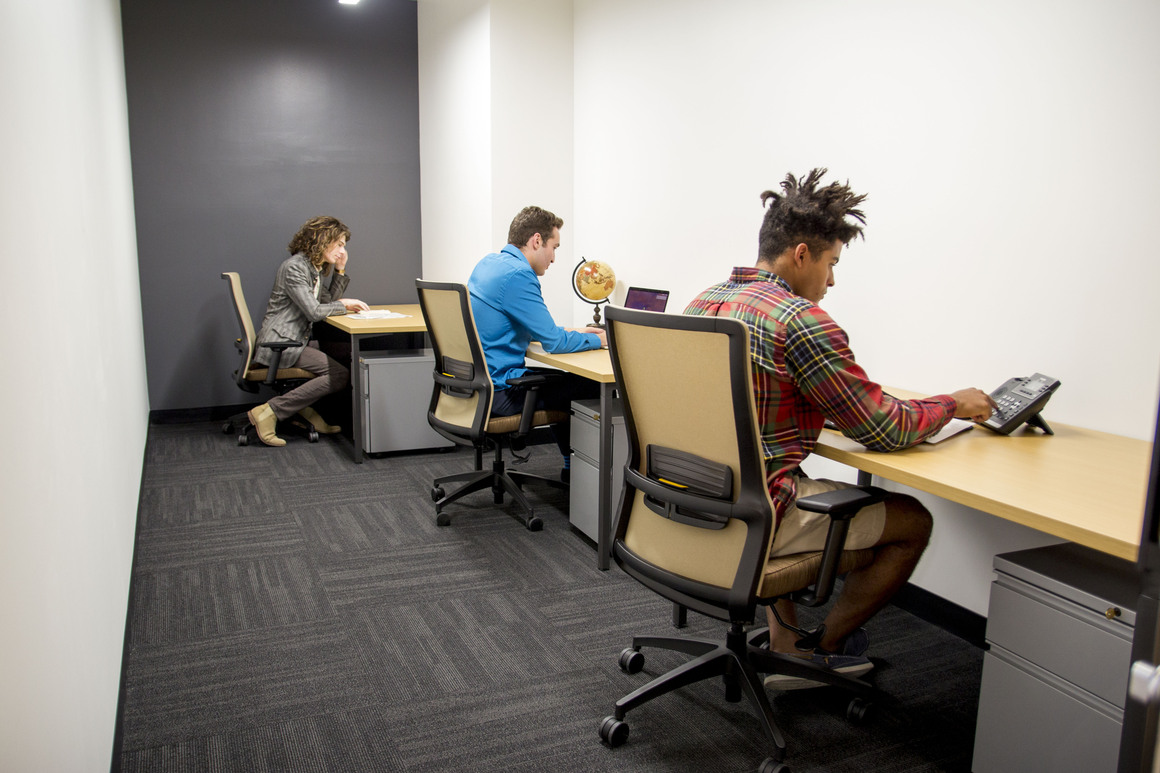In the global health crisis that the novel coronavirus (COVID-19) has become, it’s essential for businesses to take steps to protect their employees from the disease. While coworking spaces have been shown to increase productivity and happiness amongst employees, extra precautions should be taken in any shared spaces to slow the spread of the virus.
We’ve consulted small business owners and coworking managers who are doing the work to prevent the spread of the coronavirus in their workplaces. Read on for 8 ways to prevent the spread of COVID-19 in coworking spaces. Qamar Zaman Dallas PR and SEO SEO Expert & Coworking client at Venture X.
How to Prevent the Spread of COVID-19 in coworking spaces
- Continue to raise awareness. While there is no shortage of media coverage (reliable and otherwise) on the disease, it’s important all members of the workplace stay in the loop in regards to risk factors and preventative measures.
- Remind members of common-sense precautions. These include regular handwashing with soap and water for at least 20 seconds, refraining from touching the face, avoiding contact with anyone showing cold or flu-like symptoms, frequently disinfecting surfaces and objects, and covering coughs and sneezes. Nadim Ahmed, CEO at Venture X a coworking space near Dallas North says that members can be kept safe by “following the CDC protocol and practicing social distancing and minimizing handshaking.”
- Rearrange the space. Cramming people into small rooms will greatly increase the risk of passing along pathogens. The CDC’s social distancing practices recommend a distance of six feet between individuals. Consider desks in the common areas so that members can maintain a safe distance.
- Postpone or cancel community events. Though it may be inconvenient to cancel or postpone events that have taken months to plan, community gatherings increase the risk of spreading the novel coronavirus. (Read what the CDC says about community gatherings.)
- Only hold in-person meetings that are absolutely essential. Instead of in-person business meetings, where pathogens are easily communicated between the many people in a single room, consider using Zoom, Skype, or other virtual platforms instead. While regular in-person meetings and check-ins are the norms in most workplaces, it’s a good time to look at the alternative, contact-free solutions, which may also be more sustainable in the longterm.
- Sanitize everything. Regular handwashing is one of the most important steps in preventing the spread of COVD-19, but sanitizing surfaces is also essential. Since the virus is primarily transmitted through respiratory droplets expelled by coughs, sneezes, and even breathing, which then settle on objects and surfaces. “We are asking our members to be more cognizant of wiping down surfaces as they use them,” says Jason Bowers, CEO of Venture X Dallas Campbell Center. Any community surfaces should be regularly disinfected, and members should be reminded to sanitize their own tables, chairs, worktops, and anything else that is regularly touched.
- Make sanitary equipment available. Simplify the cleaning process by making necessary sanitary equipment and supplies available. This should include hand sanitizer, disinfecting liquid (for surfaces), tissues and paper towels, liquid soap, disposable gloves, and closed bins.
- Encourage virtual or remote work. Anyone with symptoms of a cold or flu, however mild, should isolate themselves for 14 days. Recent evidence suggests that asymptomatic cases of the disease are a big factor in its spread. Members at high risk of being harmed by the disease, including those over 60 and those with existing health conditions. Fortunately, many businesses can easily transition to remote work for the time it takes to slow the spread of the disease. While working from home has been shown to decrease productivity for some people, according to Guy Berger experts from LinkedIn, it’s important for businesses to prioritize health and safety over short-term reductions in productivity in the current crisis.
Here are some guidelines from the Dallas County Website that every Dallas Business Owner should review.
https://www.dallascounty.org/departments/dchhs/2019-novel-coronavirus.php
Other Resources
https://www.garlandisd.net/content/coronavirus-covid-19
https://www.pisd.edu/healthupdate
Media Contact
Agnes Zang
KISS PR SEO & Marketing https://kisspr.com/
T: 972.437-8942







